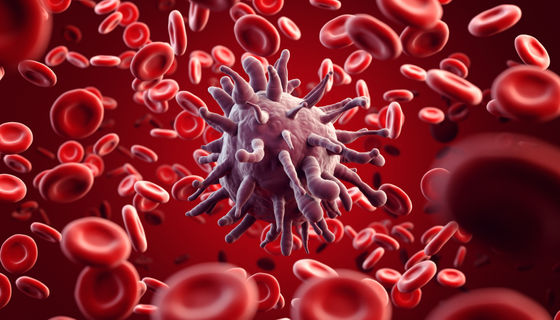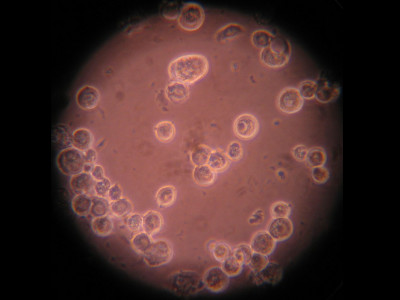Patients receiving leukemia treatment 'CAR-T cell therapy' have no signs of recurrence for 12 years, and the research team concludes that 'leukemia can be treated'

Two leukemia patients who received ' CAR-T cell therapy ' in the early stages of development, in which immune cells (T cells) extracted from blood are remodeled so that they can 'attack cancer cells' and then returned to the body, are in remission. Has continued for 12 years, and research results have been announced that 'CAR-T cell therapy can treat leukemia.' At the beginning of the treatment, the research team thought that leukemia should definitely recur, but after 12 years of no recurrence, the idea was changed.
Decade-long leukemia remissions with persistence of CD4 + CAR T cells | Nature
Last-resort cancer therapy holds back disease for more than a decade
https://www.nature.com/articles/d41586-022-00241-0
CAR-T cell therapy can extract T cells, a type of lymphocyte, from a patient and use gene editing technology to create a special protein called 'chimeric antigen receptor (CAR)' that attacks cancer cells. It is a treatment method in which the drug is remodeled and then administered again. In the United States, as of January 2022, five types of CAR-T cell therapy have been approved by the regulatory authorities for diseases called 'blood cancer' such as leukemia, lymphoma , and myeloma .
Mechanism of CAR-T cell therapy-YouTube
Newly published by David Porter and colleagues at the University of Pennsylvania is a report on Doug Olson and another subject who were treated early in the development of CAR-T cell therapy. Since receiving CAR-T cell therapy for chronic lymphocytic leukemia in 2010, Olson et al. Have not seen any recurrence, and Porter et al. Re-certified it as 'sustained remission'.
Although the success rate of CAR-T cell therapy for chronic lymphocytic leukemia is increasing year by year, the remission rate is about 25 to 35% in the early stage when Olson et al. Are treated, and there are cases where remission occurs once and then relapses. It has been confirmed frequently.
This announcement summarizes a 12-year follow-up study of Olson et al. In the blood of Olson et al., 'CD8 + cells,' a type of T cell, became dominant immediately after treatment, but the number since then. It describes how 'CD4 + cells' became highly activated over the years.
This follow-up study revealed the effect of CAR-T cell therapy on the blood of Mr. Olson et al., But it is not clear what actually prevents the recurrence of leukemia. Whether all leukemia cells were killed at the stage of CAR-T cell therapy, or T cells that remained in the blood destroyed the newly generated leukemia cells before they reached a detectable level. I don't know if they are doing it.

The study is positioned to demonstrate the long-term sustainability and safety of T cells in the body, and Olson, who has been re-certified as having no signs of recurrence, will act as a mentor for cancer patients. 'If we can give hope to people with cancer,' he said.
Related Posts:
in Science, Posted by darkhorse_log







